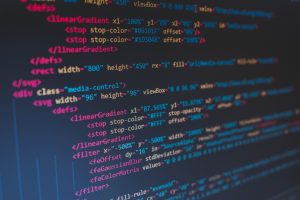Coding. What is it, why is it necessary, and do I need to learn it? To answer the first question, it’s best to start with what coding is for. Coding is used to give directions and communicate with computers and machines so they can perform the tasks that we need. It is essentially a language that computers can interpret and respond to. The different ways to write code are called programming languages. There are roughly 700 different programming languages one can learn so there is no shortage of material for a coding enthusiast.
Responding to the second question, coding is necessary because it enables most of the objects we use every single day. Everything from your washing machine to your coffee maker to the device you are reading this article on required lines upon lines of code. Now that we know what coding is and why it’s such a valuable skill, let’s discuss whether or not you should consider learning it.

Coding Careers
Many coders learn their craft because it is essential for their job. As a matter of fact, in 2015, 20% of “career-track” jobs required a coding background and that percentage only rises by the day. Additionally, jobs that require coding tend to pay better than those that don’t: on average they pay 22,000 dollars more than jobs that do not involve coding. Therefore, coders are in high demand and are compensated accordingly. If you are a student who has yet to decide on your career path, you may want to consider what your future career will look like. This way, you can align your studies with the skills you will need for your desired field.
If you enjoy problem-solving, working with machines, engineering, science, etc. learning to code would be an excellent skill to add to your repertoire. Even if it is not a prerequisite for a job, it may make you a more appealing and qualified applicant. Try taking an introductory coding class to see how you like it; some may find it painfully dull while for others it just “clicks” (no pun intended). Either way, you’ll gain a useful tool under your belt. Lastly, it’s a fantastic hobby because you can do it anywhere, from a college campus to the comfort of your own home.
Adapting to the Future
So if I have no plan on entering a career path that involves coding is there no reason for me to learn it? Absolutely not! Many code as a hobby or for personal fulfillment. Perhaps you want to make an animation or you want to perform statistical analysis for a project you are working on. Coding will help you to accomplish these tasks and much more. Furthermore, gaining a better understanding of how our devices are programmed to work will increase your understanding of computers and technology in general.
Therefore, don’t write off coding even if it has no value for your line of work. Also keep in mind the fact that many jobs are being replaced by AI, and you never know what your job will look like in the future. You may have to initiate a career change, or your job may become more technology-dependent. Knowing at least some of the basics behind coding will help you to better adapt to the future.
Inspiring and Preparing Future Generations
More and more schools are adding coding to their elementary, middle, and high school curriculum because many believe children should become technologically literate at a young age in order to prepare them for the workforce and our quickly changing society. If you’re a teacher of any grade level, consider adding weekly code classes to your curriculum. Even teaching the most basic elements of coding may pique some of your students’ interest and launch them into a STEM career. Coding is known to improve logical thinking, persistence, and problem solving so it is also a fantastic way to build character in your students. Many computer programmers say that learning to code was the first time they felt they truly understood and had a passion for school material because they never had an affinity for the humanities.

In conclusion, learning to code is an incredible idea for nearly everyone. Regardless of your age or occupation, there is great value in learning to program computers and understand how they work. Taking an introductory coding course is rarely a bad idea and more and more schools are adding coding as part of their curriculum. If you want to become more technologically literate, build character, and open yourself up to many potential career opportunities, give coding a chance.
Written by: Lucy Reid
